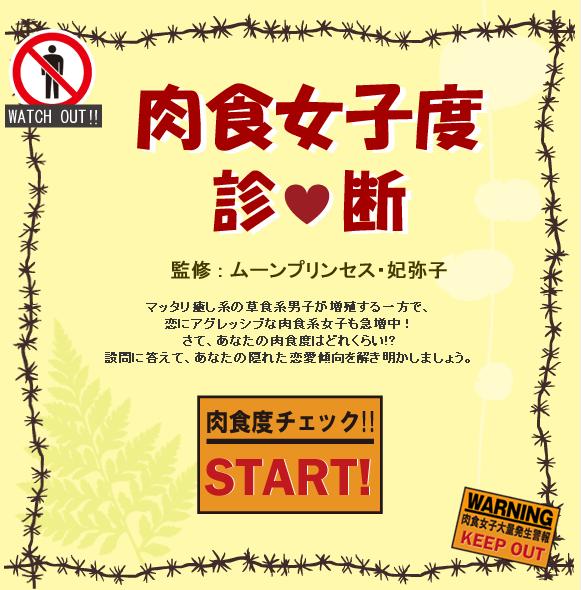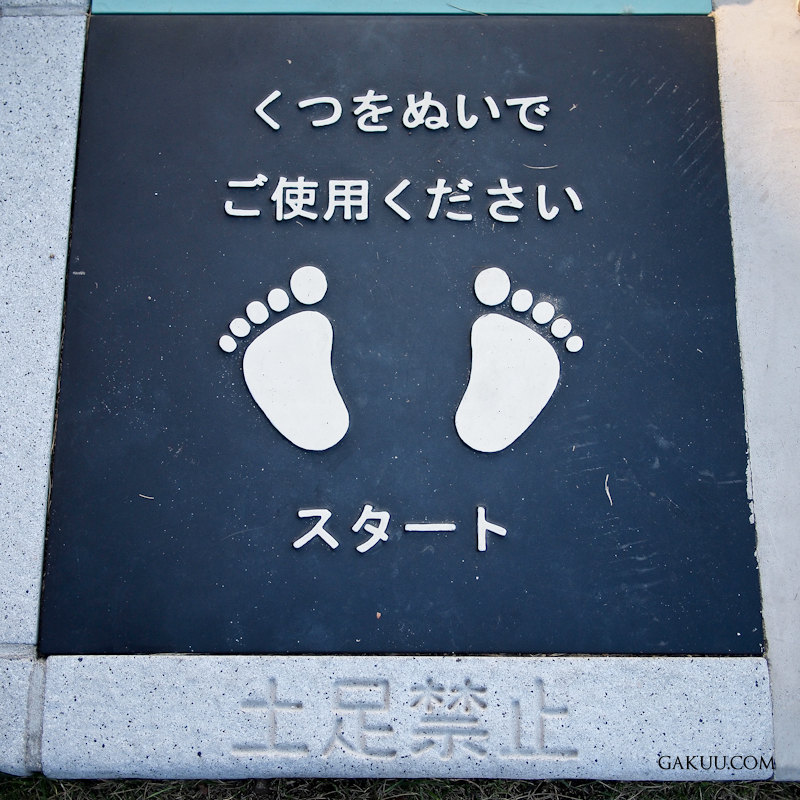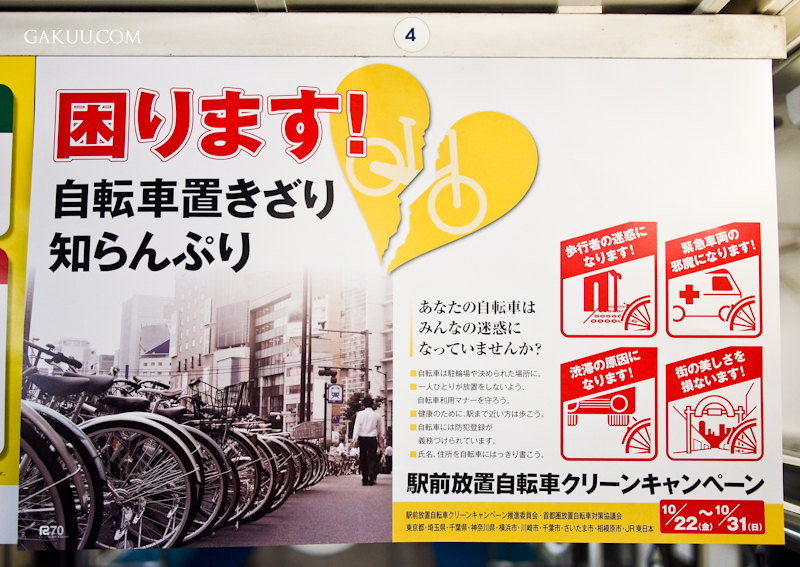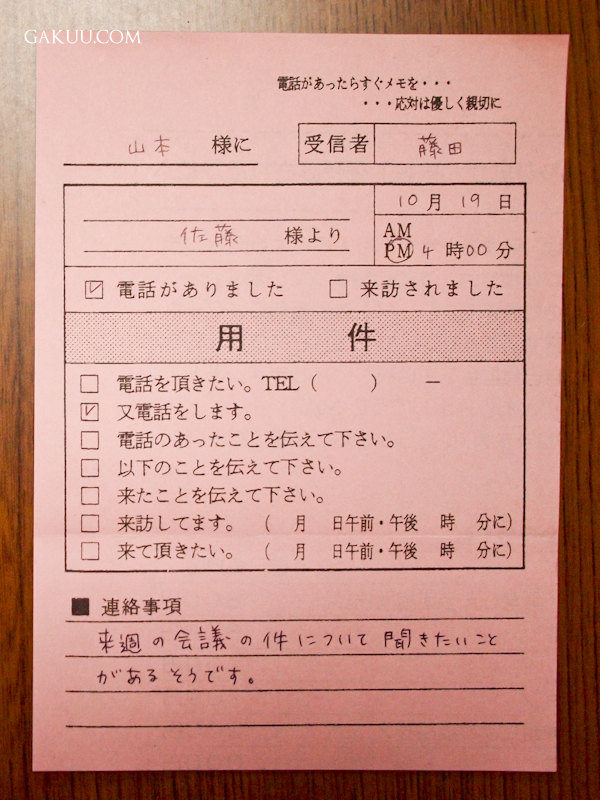Month: November 2010
-
Not Necessarily – 訳ではない
Is that an Obama Bobble Head figurine I see? Why yes, it is! Some plucky employee has scrawled a message below it talking about black people. Do you know your grammar well enough to decipher it?
-

Shining White. For Kiss!
Quirky Engrish pops up everywhere in Japan and can be a constant source of amusement for the budding language student. Put your cringing to good use and try reading the Japanese alongside it!
-

You’re Only Popular 3 Times – モテ期
モテ期 (もてき) is an interesting slang term sometimes heard in Japanese. Recently the subject of a popular television and manga series, it seems relevant to explain the meaning here.
-

Autumn Foliage
Autumn is in full bloom in many places across Japan right now, so it seems seasonal for a little update about 紅葉 (こうよう or もみじ). Both words refer to the vibrant, colourful leaves that emerge with the colder, shorter days. See what you make of this listening practice. Photo from http://meow.fr Autumn Foliage The script:…
-

Carnivorous Girls and Herbivorous Boys
Are traditional gender identities changing? It seems like it might be the case if we examine buzzwords from Japan. Popular a couple of years ago, the so-called 肉食女子 and 草食男子 – carnivorous girls and herbivorous boys – paint a very different picture to the traditional idea of assertive men and shy women.
-

Shoes Off Before Coming In!
It’s no secret that many places in Japan require that you take off your shoes when entering – good examples being temples and family homes. I was quite surprised, however, to see a sign warning about this practice placed outside in a public park!
-

Pretending Not to Know – ふり
Have you ever come across the word ふり before? It’s used in a variety of situations to show pretense or false behaviour. Today’s phrase we’ll focus on then is 知らんぷり – pretending not to know something. You’ll also learn about the mysterious ん slotted in there!
-

Taking Messages in Japanese – 伝言
Continuing with the theme of taking messages, here is a look at another note with a few new expressions. This one is more formal and can also be used to make notes about visitors. Be sure to check out the other post first.